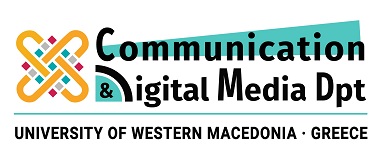CDM 7125 CRISIS COMMUNICATION
LEVEL OF STUDY: UNDERGRADUATE
COURSE UNIT CODE: CDM 7125
SEMESTER: 7th
COURSE TITLE: CRISIS COMMUNICATION
TEACHING WEEKLY HOURS: 3 H/W LECTURES
ECTS: 5
COURSE TYPE: CORE COMPULSORY
TEACHING AND EXAM LANGUAGE: GREEK
COURSE DELIVERY TO ERASMUS STUDENTS: YES (in English)
The aim of the course is to introduce students to the concept of crisis communication through a combination of theoretical approaches and case studies. During the course the theories of image repair, situational crisis communication theory, apology, and issues management are presented with an emphasis in their utilization by organizations. The various crisis communication strategies are analyzed along with the factors that might influence their effectiveness. The importance of the crisis communication plan is presented and guidelines are also provided with respect to the synthesis of the crisis communication team, the structure of the crisis communication plan, the effective management of media relations and the characteristics of the media representative. Students will be involved in writing press releases, preparing media representatives, and planning press conferences for various crisis types. Since the course is part of the Jean Monnet Chair (2022-2025) another objective of the course is to shed light on common crisis communication practices by various organizations in Europe. By analyzing how various organizations such as corporate actors, institutions, and public personas in European member states communicate during crises, a European model of organizational crisis communication could be developed. In addition, the role of media relations of EU institutions and their media representatives will be analyzed.
Upon successful completion of the course the student will be able to:
- identify the different types of organizational crises.
- develop alternative scenarios for risk mitigation and crisis prevention.
- integrate the theoretical approaches of crisis communication to different types of organizational crises.
- formulate crisis communication plans.
- compare and contrast the various crisis communication strategies based on their effectiveness.
- Develop a European model of organizational crisis communication.
Innovative student-based learning and teaching methods will be used such as decision-focused case studies, role-playing simulation of crisis, simulations using social media, participation as members of crisis response teams, delivery of emergency messages to key stakeholders through videos or social media messages, holding press conferences, conducting interviews with journalists, writing press releases, group assignments, and active participation in research projects. Students will also be encouraged to participate in various research activities of the Chair such as collecting data from recent crises-disasters, conducting content analysis of data and interviews, and administering survey questionnaires, etc. Moreover, the course will be enriched with guest lectures from academics, scholars, specialists and experts from Greek and other European organizations and higher education institutes.
